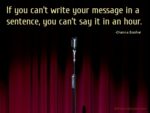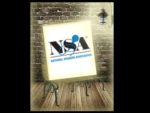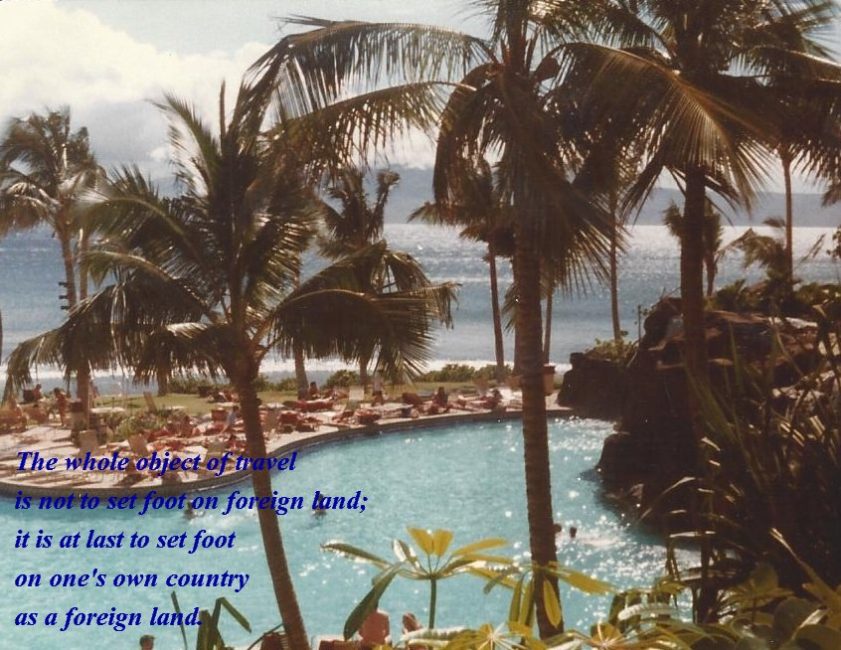Last updated on January 22nd, 2019 at 01:50 pm
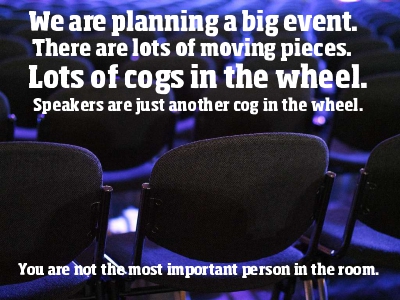 So, it’s your big dream to be a highly paid motivational speaker? Well, today is your lucky day. I am going to share the most sought-after answer in the speaking business, from the new-to-seasoned public speakers:
So, it’s your big dream to be a highly paid motivational speaker? Well, today is your lucky day. I am going to share the most sought-after answer in the speaking business, from the new-to-seasoned public speakers:
“How much should I charge?”
Short answer?
“Whatever you want.”
That’s right. It’s your public speaking business dream. You decide how much you need to leave your house, make ends meet, and create the life you dream of living. You decide how much it’s worth for you to do this speaking dream job.
BUT.
It doesn’t mean you’ll receive what you ask to be paid. Because what you’re worth has nothing to do with what your client will pay. Potential clients will pay what it’s worth to them. It’s how the public speaking business works. Ultimately you are worth what your market perceives your value to be. This is why you will ALWAYS get calls from potential clients who want you to speak for a low fee.
AND… to make it even more confusing… what fee you are worth will change depending on who the potential client is, what they desire, and what kind of event they are planning.
Speaker Fees from the Meeting Planner’s Perspective
Let’s pretend that a massive company has called you to speak for their group. They want you to talk about confidence and women’s issues. They want you to empower the women in the organization. You are excited because this is just the opportunity you have wished for; to change lives and empower women. What a difference you can make in their organization!
Then they tell you they can pay you one thousand dollars.
Your excitement crashes into the wall like a new puppy on a slippery floor. You’re outraged. You’re baffled. You’re offended. This client is a huge company! You know they have more money to offer. How is this offer empowering women–to pay you so much less than you are worth? The horror! Many public speakers who have been speakers for years would be shocked and offended that a company of such a high reputation is offering such a low fee. I, too, used to get angry and offended when people asked me to lower my speaking price–when they dare suggest that I travel to speak somewhere for five hundred dollars.
That is until I looked at it from the client’s perspective.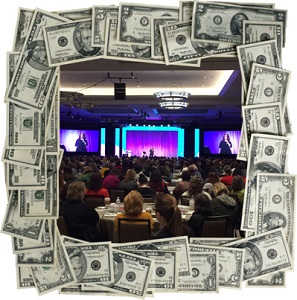
Pretend you’re on a committee to plan a monthly networking event for the women in your company. You’re lucky if thirty women show up. You have a minimal budget. You need to provide dinner, book a room, pay for gifts and invitations, decorations, and someone to speak. You have more budgeted for dessert than for your guest speaker. You don’t care. Your ladies don’t play around when it comes to dessert.
At the end of the day, you as the event planner have a thousand dollars for a guest speaker. And you are lucky to get that amount approved in the budget. There are thousands of public speakers whose fees are in the thousand dollar range. You, as the event planner book your speaker–no problem. Everyone involved is happy.
In this scenario, as in most booking scenarios, how much the speaker feels they are worth doesn’t factor into the potential client’s equation. The meeting planner only cares about what they need, how much they have to spend and to get the best deal for their money. It’s just business.
10 Speaker Fee Lessons for You as a Motivational Speaker
1. Don’t assume because a company has a significant reputation means they will spend big money on you and the event. A company will pay far more for their sales convention, for example, than they might on their annual administrative luncheon.
2. Don’t guess their budget size based on how many people are coming to the event, or who was the speaker last year. Guesses can lead you to incorrect assumptions.
A. Just because they had a “big name” speaker last year doesn’t mean the “big name” speaker was paid the big bucks. TRUST ME on this one.
B. Just because the potential client paid a specific speaker a large fee last year, or they pay another speaker a substantial compensation this year, doesn’t mean they will to pay you a generous amount.
3. Some of the most sizable audiences I’ve spoken to have paid me the least. Some of the smaller groups have more money to spend than you might guess.
4. Public speakers are a commodity. There are thousands of speakers in every price range. Just like cars are manufactured and sold for different budgets, so are public speakers. You are not as irreplaceable as you may think.
5. Potential clients don’t buy you to change the world, create a cultural change in their organization, or establish world peace. They pay you to talk for forty-five minutes about something they care about it, and for you not to bore them.
A. If they DO hire you to do those things, then you’re talking about training. And that’s a different conversation.
B. And by the way, meeting planners have a different perspective about worth and a separate budget for training. Again, another conversation.
6. You can try to negotiate more money, but this tactic won’t always work if the potential client doesn’t have more money--unless they are desperate to have YOU and nobody else, which is rarely the case.
7. Stop trying to convince event planners how valuable you are. They’re busy. Just tell them whether you can do the job or not, so they can call someone else if needed.
8. Don’t waste energy being outraged at the compensation potential clients offer you. Again, this is how business works. When you call someone to paint your house, you want a price. You don’t want the guy to give you a lecture on why you should pay him more. The last thing your meeting planner wants is to be “educated” on how much you should be paid.
9. Know your worth and the amount you’re willing to speak at the event for and own it. Don’t use the potential client booking call to process your feelings out loud. Just say yes or no and move on. And be nice about it. Don’t burn a bridge. You never know if that person will be in charge of a more significant budget down the road.
10. If your phone isn’t constantly ringing with offers; if your potential speaking lead pipeline isn’t full; if your calendar has a bunch of empty gaps–then don’t be ashamed to take lesser paying speaking jobs. It’s simply business. Needless to say, I make a lot more money negotiating my fee, than waiting for those who will pay my full fee. AND more bookings is more marketing and more seeds planted for future business. You do the math.
You need to find your happy place in the middle–somewhere between valuing yourself, owning your worth and realizing potential clients are just paying you to talk. In an hour they will be on to something else.
I’ll never forget these words a meeting planner once told me:
We are planning a big event. There are lots of moving pieces. Lots of cogs in the wheel. Speakers are just another cog in the wheel. You are not the most important person in the room.
Kelly Swanson
Enjoy my books on public speaking!
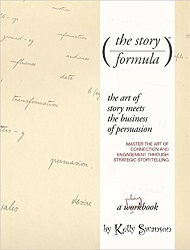 | 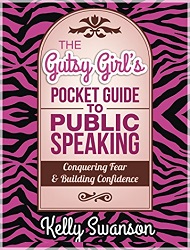 | 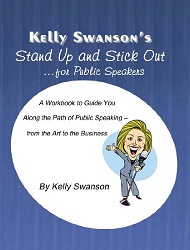 | 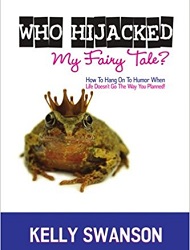 |
|---|
Kelly Swanson is an award-winning storyteller, comedian, motivational speaker, Huffington Post Contributor, and cast member of The Fashion Hero television show airing on Amazon Prime. She is also the author of Who Hijacked My Fairy Tale, The Land of If Only, The Story Formula, and The Affirmation Journal for Positive Thinking. She was a featured entertainer for Holland America Cruise Lines, keynote speaker for the International Toastmasters Convention, and has keynoted major conferences and corporate events from coast to coast. She just launched her one-woman show Who Hijacked My Fairy Tale in theaters, and it is being booked all over the country. In July of 2022, she was inducted into the National Speakers Association Speaker Hall of Fame.
Note: Articles by Kelly may contain affiliate links and may be compensated if you make a purchase after clicking on an affiliate link.

